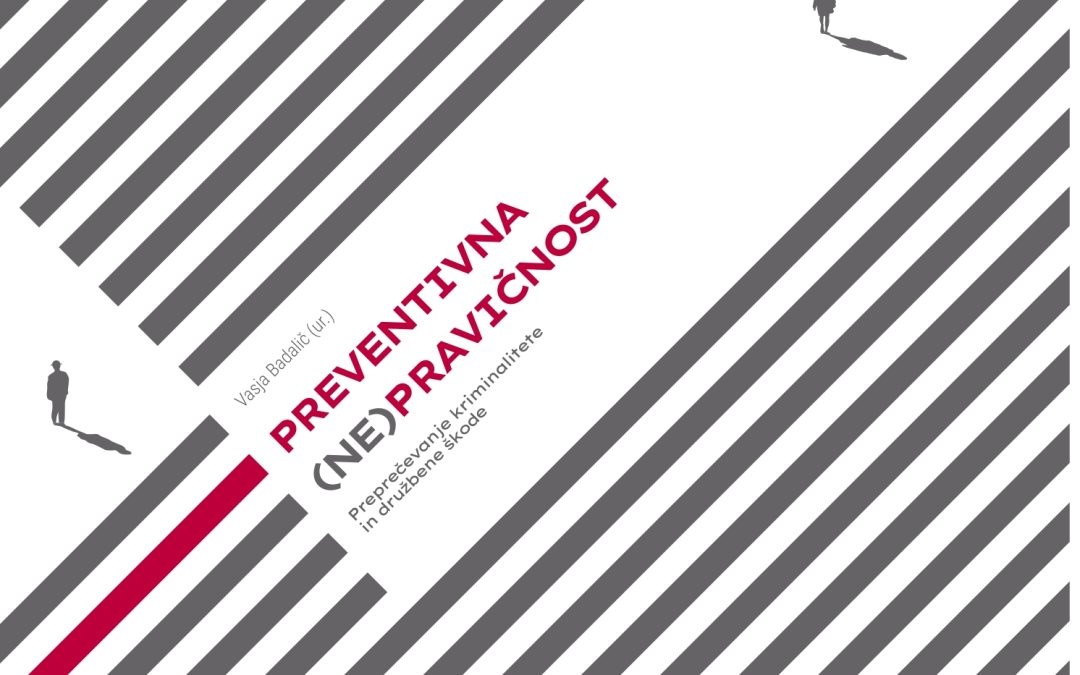A new monograph entitled “Preventive (in)justice – The prevention of crime and social harms” has been published by the Institute of Criminology. The monograph – edited by dr. Vasja Badalič and with chapters authored by several Institute of Criminology researchers – makes an important contribution to the understanding of the concept of preventive action in the field of crime and social harm prevention.
Using an interdisciplinary approach, drawing on the fields of criminology, law, sociology, genetics and neuroscience, the monograph offers new insights into six different manifestations of preventive action and its consequences. The first chapter, written by Manja Skočir and Renata Salecl, focuses on contemporary problems of crime prediction, which serves as the basis for preventive policies. The author of the second chapter, Zoran Kanduč, examines the role of preventive action in the capitalist system, in particular how the authorities use preventive methods, including the use of physical violence, to maintain the exploitation of the working masses. In the third chapter, Liljana Selinšek offers a critical look at the latest scientific findings in the field of preventive action against corruption. In the fourth chapter, Pika Šarf critically examines the problems that arise in the transfer of personal data between different databases, which should allow for better preventive policies. In Chapter 5, Vasja Badalič offers an analysis of the new doctrine of preventive warfare developed by the US in the post-9/11 era, while in Chapter 6, Iva Ramuš Cvetkovič explores the “collateral damage” caused by the use of anti-satellite weapons in kinetic tests carried out to preemptively remove retired satellites.
One of the strengths of the monograph is that it clearly outlines the wide range of problems that arise in crime prevention and social harm prevention in a way that is understandable to members of the scientific community and a wider audience.




